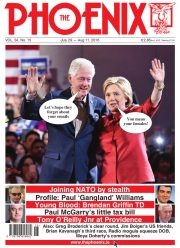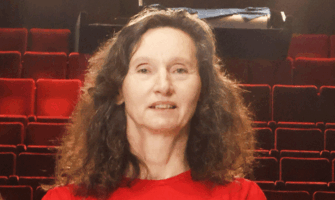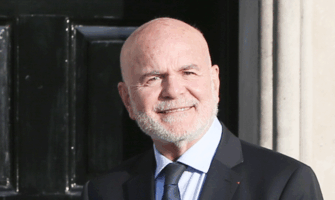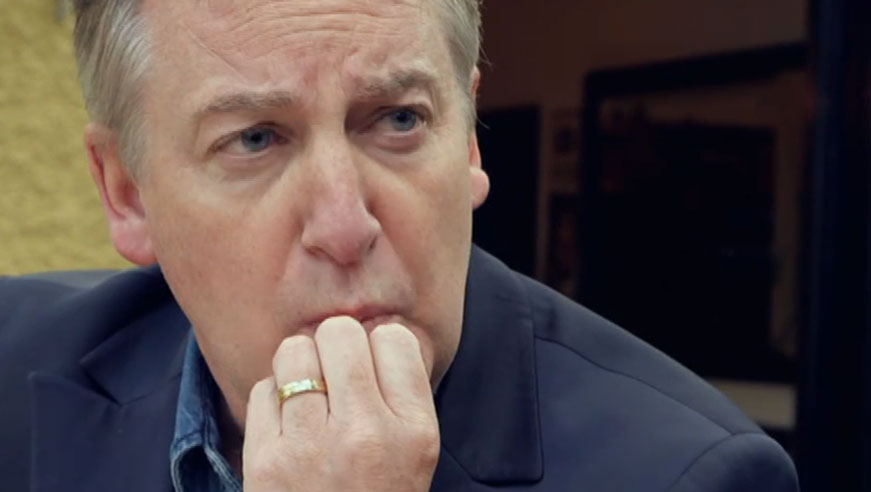
Paul Williams
CAN Paul Williams save Newstalk from disaster as Denis O’Brien’s station faces life without Ivan Yates, with George Hook heading towards the door and RTE stealing listeners as well as backroom staff? There is an air of desperation at Newstalk as indicated by the choice of Williams as the principal personality to fill the void on the Breakfast programme. But can Williams bridge the gap between cops’n’robbers hack and current affairs pundit?
An unspoken alliance in Irish public life is the one between the media’s security correspondents and middle to senior ranking gardaí. The unofficial contract between the two interest groups is that the hacks get the inside stories and the gardaí get unalloyed media support for whatever they want, be it extra resources, ever more stringent laws and the targeting of “enemies” such as the garda ombudsman or suspect politicians. Thus, gardaí regularly “smash” drugs gangs and risk their lives to save others; crime regularly “spirals” out of control; IRA smugglers and racketeers have amassed fortunes bigger than the national debt and the goddam politicians treat the bad guys with kid gloves.
The rapid rise of ex-Garda Review editor, Stephen Rae (he had been editor of the then Evening Herald for seven years) to Irish Independent editor in September 2012 and then editor-in-chief of INM titles in June, 2013 – a period of just nine months – owes much to Rae’s formula of shocking crime drama dressed up as news. He and Williams are a real life version of Walter Matthau and Jack Lemmon, straight out of the film, The Front Page, providing sensationalist stories about good (cops) and evil (scumbag criminals, subversives and assorted targets). This professional union is reflected in the personal bond between the two and Williams was Rae’s best man at his wedding. A more interesting commonality between the pair is that they both stand accused of having had penalty points wiped with TD Joan Collins naming Williams in the Dail in 2012. A helpful Indo explained that Williams was travelling to a medical emergency involving a family member when this occurred in an article headlined, “TD ‘abused privilege’ by naming writer”.
INDO EMPLOYEES
There is another, equally unspoken but identifiable, media alliance between Newstalk and INM. This involves an editorial cross fertilisation that sees Indo journalists broadcasting on Newstalk and station presenters writing regularly or occasionally for the Irish and Sunday Independent. Of the four new broadcasters brought in to replace Yates and Chris Donoghue on the Breakfast programme, two, Williams and sports columnist Alan Quinlan, are Indo employees. A third, Newstalk political correspondent Shane Coleman, is a regular columnist with the Indo.
The new line-up does not start until September but in the meantime INM group political editor Kevin Doyle was drafted in with no objections from the obliging group editor, Rae. It is rather unlikely that RTE and The Irish Times would reach agreement for the latter’s political editor, Stephen Collins, to present a regular morning current affairs slot with the station. Yet Denis O’Brien’s INM reached agreement with Denis O’Brien’s Newstalk for such an agreement within a matter of hours recently.
Newstalk’s Sarah Carey, presenter of Talking Point on Saturday mornings, writes regularly for the Sindo; Shona Murray has recently been writing for the Indo; George Hook pens the occasional piece for the Indo; and conversely, INM group business editor, formerly legal editor, Dearbhail McDonald, has filled in for Pat Kenny when he has taken holidays. Radio Independent is how some listeners and readers now view the station.
This relationship reaches a high point with the new Breakfast programme, as Indo journalists Coleman, Quinlan and Williams – along with TV3’s Colette Fitzpatrick – are to provide the core of the team. But will it work? Coleman is one of O’Brien’s favourite journalists, a status earned partly because of his forthright criticism of the Moriarty Tribunal (see The Phoenix, 7/10/11 and passim) and is an earnest, conventional journalist. But paired with Fitzpatrick – another capable professional – the new duo hardly compares to Yates and Donoghue; more like Donoghue and Donoghue. Which is where Williams is supposed to come in.
Quinlan’s recruitment as sports anchor man is also curious and problematic as the respected rugby columnist is not known to have much interest in or knowledge of, say, the English premiership, golf or a host of other sports. Quinlan underlines the basic flaw in the method employed by station bosses, which is to prioritise names over editorial content.
Newstalk has other problems as well. Not only has it lost its star performer, Yates, but it is also suffering a brain drain of producers and researchers to RTE which pays backroom staff good wages, especially compared to Newstalk’s yellow pack rates. This exodus has increased in recent weeks and station management fears that the uncertainty surrounding the new line-up and declining listenership in recent months is a contributory cause.
Even before Yates and Donoghue bade farewell, the Breakfast programme’s latest figures showed a decline of 7,000 and the station’s other main programme, The Right Hook was down 9,000. RTE’s renewed radio strategy has seen it eclipse O’Brien’s Communicorp stations, Newstalk and Today FM, on virtually every programme level. This is down to its greater resources in back-up staff as against Newstalk’s formula of big beast presenters like Hook and Yates who are paid mammoth salaries while their research and production teams are slimmer and low paid. Station bosses, CEO Tim Collins and editor-in-chief Garrett Harte are now trying to replicate the star personality formula with Williams as the principal player.
CURRENT AFFAIRS DEFICIT
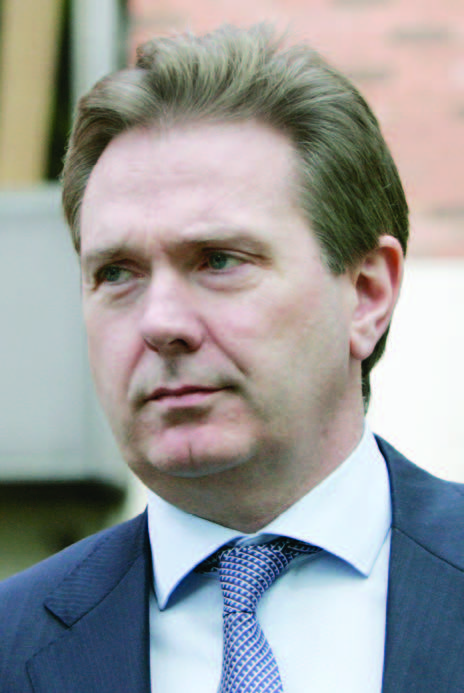
Stephen Rae
The problem here is that an in-depth current affairs knowledge and perception is part of Yates and Hook’s “personalities”, without which Hook in particular would be unbearable to listen to. But the obvious weakness in Williams’s personality as a broadcaster – and he is a good broadcaster when relaying tales of heroic crime fighters – is his current affairs deficit. After trial runs of various broadcasters in June, Williams was selected to fill Yates’s shoes. Realising that their new personality was not Jon Snow in disguise, his tutors sent him away for the summer break with the strong recommendation that he bone up on current affairs before starting the Breakfast programme in September. That Newstalk strategists should believe cramming can produce a national broadcasting commentator to compete with such as Morning Ireland says everything about the station’s philosophy and news values. And if Williams does come back in September with his head full of “stuff”, it is to be hoped he does not present as a journalist possessed of that dangerous thing, “a little knowledge”.
The first indication that Paul had done some homework outside the thin blue line came with a recent Sindo story on former Rehab boss Angela Kerins and what he described as her “evisceration at the hands of the grandstanding” PAC. Williams unleashed his standard arsenal of invective against the “politically correct” media and “populist” PAC members for their “public humiliation” of Angela and managed to drag in Gerry Adams and the “vast amount of corruption and cover-ups (including murder, child abuse and racketeering) in the Republican family”. Perhaps Newstalk listeners are eager for this kind of taxi-driver news commentary in the morning, but anybody expecting Leitrim’s answer to Jeremy Paxman or even Cathal Mac Coille, will be disappointed if this is what is on offer in September.
Williams rose to the top of his particular media peer group as the most entertaining chronicler of the feds versus the underworld, Irish style. But being top dog in this milieu meant that he took all his information and perspective from the gardaí. In turn, he betrayed all the simplistic, one-sided, law and order tone of those sources and like most of the security corrs always defended the gardaí, even in the most implausible circumstances. Williams once dallied with the proposition that he join the Progressive Democrats but rapidly cooled on the idea when the then justice minister, Michael McDowell, brought forward legislation creating the Garda Síochána Ombudsman Commission (GSOC). Parroting his garda sources, Williams then wrote that McDowell was not only undermining the gardaí but also taking the force under his personal control and usurping the garda commissioner’s powers. Even worse, the new law could enable dark forces to compromise garda investigations into SF and IRA racketeering.
Williams’s blind law and order outlook has led to some embarrassing situations as when he and the Indo went into overdrive against GSOC when it was claimed that the Ombudsman’s offices may have been bugged. DCU media Professor Colum Kenny, a long time Sindo contributor, caused Rae and Williams serious angst by twice writing in the Sindo about “incorrect” and “inaccurate” claims in “some media” that the Cooke report into the affair had damned GSOC.
The recent Hutch-Kinahan feud allowed Williams and Rae carte blanche to indulge themselves in classic manner and Williams, argued in conversation with RTE’s Joe Duffy, without a hint of irony, that “no one can be accused of using tabloid hyperbole” in this situation. This did not prevent The Irish Times radio critic, Mick Heaney, from describing Williams as speaking in a “tone veering between macho and apocalyptic”. But while commenting breathlessly on a gang feud that is indeed alarming, Williams peppered his remarks with repeated complaints about under resourced gardaí let down by, yes, “politically correct” dupes in government. After one such rant and again without any apparent irony, he remarked: “Even the Association of Garda Sergeants and Inspectors (AGSI)” were complaining about a lack of resources. Even the AGSI?
OFF-RECORD LEAKS
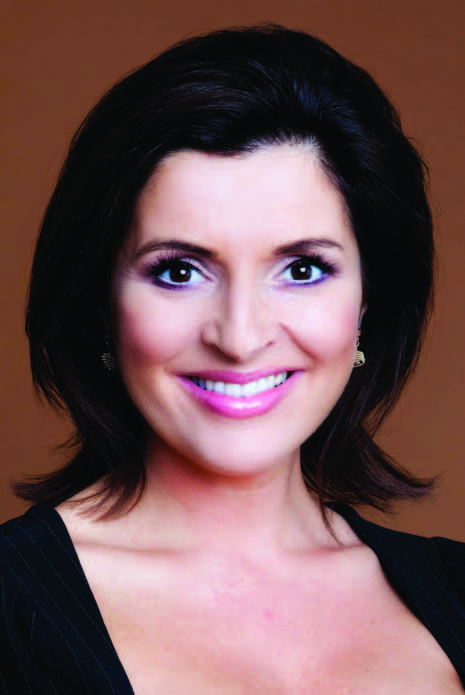
Colette Fitzpatrick
Equally telling was Williams’s use of the feud as cover to attack garda commissioner Nóirín O’Sullivan for being more concerned at garda “leaking of information to the public” than the Kinahans. This refers to the outrage of many security hacks, with Williams leading the charge, at the commissioner’s campaign to staunch the flow of off-record leaks from various, middle rank gardaí to their favoured security hacks. Williams once enjoyed access not only to coalface gardaí but also the very top of the force with more than one past commissioner using Williams as a useful cypher. O’Sullivan has cracked down on all of this with a series of inquiries that has even seen one garda officer arrested at his desk and causing pandemonium among crime hacks, Williams in particular, whose very existence is threatened by such a move (see The Phoenix, 11/9/15).
The Indo and other similar media rely on the perception – greatly assisted by themselves – of a society racked with crime and infested by dastardly criminals that would kill people in their beds and transport their children into the slave trade. But if the Kinahans’ murderous rampage around Dublin fits into the Indo’s apocalyptic view of crime in Ireland the actual crime statistics do not. In 2005, the murder rate was 126 for that year. Ten years later, it was down to less than half, at 61. While kidnapping has risen to 153 from 74 in the same period, robbery, extortion and hijacking were at the same level of around 2,500 in 2015 while burglary levels are also running at the same number of 26,000 circa a year. And despite the tabloid obsession with drugs barons, the number of drugs offences rose from 13,316 in 2005 to a peak of 23,404 in 2008 before steadily declining to 15,119 last year.
Williams’s latest career move is a dangerous leap into unknown territory and he must know that failure at Newstalk will also raise questions about his future role at the Indo. But some strong financial arguments have persuaded him to risk it. Williams has been a restless soul in the past few years and having spent over 20 years with the The Sunday World until 2010, he then moved quickly between the World, News of the World, the Irish Sun Sunday, the Indo and now Newstalk. Williams had become the central journalistic personality at the World and was on something like €160,000 a year when he hit the jackpot and was poached by the News of the World which offered him a whopping €250,000 pa in 2010. But the phone hacking scandal saw the abolition of the World in 2011 and Williams was transferred to the Irish Sun Sunday. There he laboured without the usual star billing under the watchful eye of an old friend-turned adversary, editor Michael McNiffe, who already had crime reporters he could rely on.
It was assumed by some that when Rae rescued him from the Sun backwater to make him special correspondent at the Indo in 2012, Williams was on a similar, Ronaldo-like salary that he had enjoyed at the Sun and the World.
Not so. He was in no position to demand such earnings from INM when he left Rupert Murdoch’s stable and there were plenty of resentful INM/Sunday World staffers who quickly reminded management how he had defected from INM in the first place.
Williams has since been on what for him would be a pauper’s salary of €90,000. While he can still expect to make extra money from his crime books, this is a serious drop from the good old days.
However, Newstalk is paying him €110,000 which means he is more than doubling his income (he is staying at the Indo while working for Newstalk) and was an offer which, as he might put it, he couldn’t refuse.



